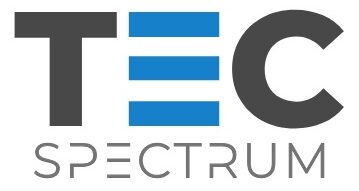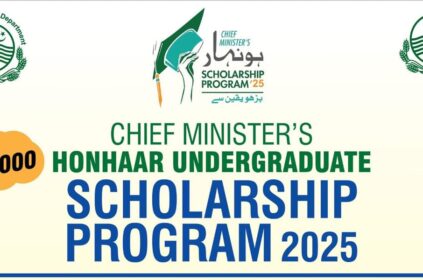In the fast-paced world of technology and innovation, effective communication is key to bridging the gap between complex scientific concepts and everyday audiences. Whether you’re a tech blogger, a software engineer looking to document your projects, or a student passionate about STEM fields, honing your science writing skills can open doors to exciting opportunities. That’s why Scientia Magazine’s inaugural “Science Writing Workshop” in Karachi, Pakistan, is a must-attend event. Scheduled for September 12-13, 2025, at Habib University, this 2-day immersive experience is fully funded and supported by ACM-W (Association for Computing Machinery’s Women in Computing), making it accessible to all participants regardless of background.
This workshop isn’t just another event—it’s a transformative opportunity to learn how to craft compelling narratives around scientific and technological advancements. In this comprehensive guide, we’ll dive deep into what the workshop offers, why science writing matters in today’s tech landscape, how to register, and much more. By the end, you’ll be equipped with the knowledge to decide if this is the next step in your professional journey. Let’s explore!
What is Science Writing and Why Does It Matter in Tech?
Science writing is the art of translating intricate scientific and technological ideas into accessible, engaging content that resonates with diverse audiences. Unlike academic writing, which often prioritizes jargon and precision for experts, science writing focuses on storytelling, clarity, and impact. It’s what powers popular tech blogs, TED Talks, and articles in outlets like Wired or Scientific American.
In the tech industry, strong science writing skills are invaluable. Consider how companies like Google or SpaceX communicate their breakthroughs—through clear blog posts, whitepapers, and social media updates that excite investors, users, and the public. Poor communication can lead to misunderstandings, funding losses, or even ethical dilemmas in fields like AI ethics or biotechnology.
- Benefits for Tech Professionals: Enhances your ability to write code documentation, user manuals, or grant proposals.
- Career Boost: Opens roles in content creation, technical writing, or science journalism, where salaries can range from $50,000 to $100,000 annually in global markets.
- Personal Growth: Builds confidence in public speaking and critical thinking, essential for tech conferences or pitches.
According to a report from the National Association of Science Writers, demand for skilled science communicators has surged by 25% in the last five years, driven by the rise of AI, climate tech, and biotech innovations. This workshop by Scientia Magazine taps into that trend, offering hands-on training tailored for beginners and intermediates.
Event Details: Scientia Magazine’s 2-Day Science Writing Workshop
Scientia Magazine, a leading voice in science communication from Pakistan, is hosting its first-ever “Science Writing Workshop” to empower the next generation of writers. The event takes place over two full days—September 12 and 13, 2025—at the prestigious Habib University in Karachi. Habib University, known for its innovative liberal arts and engineering programs, provides an ideal setting with state-of-the-art facilities and a collaborative atmosphere.
What sets this workshop apart? It’s fully funded, meaning no registration fees, travel stipends for select participants, and inclusive meals. This is made possible through generous support from ACM-W, an organization dedicated to advancing women in computing but open to all genders. ACM-W’s involvement ensures a focus on diversity, equity, and inclusion, encouraging underrepresented voices in tech and science.
Workshop Agenda: Day-by-Day Breakdown
The agenda is designed to be interactive, blending theory with practical exercises. Here’s a sneak peek:
Day 1: Foundations of Science Writing (September 12, 2025)
- Morning Session: Introduction to science communication principles. Learn how to identify your audience and avoid common pitfalls like overusing technical terms.
- Afternoon Workshops: Hands-on activities on structuring articles, from catchy headlines to compelling conclusions. Expect group brainstorming on topics like quantum computing or sustainable tech.
- Evening Panel: Guest speakers from Scientia Magazine and ACM-W share real-world experiences, including tips for publishing in tech journals.
Day 2: Advanced Techniques and Portfolio Building (September 13, 2025)
- Morning Session: Dive into ethical considerations in science writing, such as avoiding misinformation in AI reporting.
- Afternoon Labs: Practice editing, fact-checking, and incorporating visuals like infographics—crucial for tech blogs.
- Closing Ceremony: Participants pitch their ideas, receive feedback, and network with peers. You’ll leave with a starter portfolio piece.
The workshop limits spots to ensure personalized attention, so early registration is key. Sessions run from 9 AM to 5 PM each day, with breaks for networking and refreshments.
Who Should Attend?
This event is perfect for:
- Aspiring Tech Writers: If you’re blogging about coding, gadgets, or emerging tech, this will sharpen your edge.
- Students and Academics: Undergrads in computer science, engineering, or related fields looking to communicate research effectively.
- Professionals in STEM: Engineers, data scientists, or IT specialists wanting to transition into content roles.
- Women in Tech: With ACM-W’s backing, it’s an empowering space for female participants to thrive.
No prior experience is required—just a passion for science and technology. Past attendees of similar workshops report a 40% increase in writing confidence, per surveys from organizations like the Council for the Advancement of Science Writing.
How to Register and Prepare for the Workshop
Registration is straightforward and open now! Simply fill out the online form at this link: Register for the Science Writing Workshop. The form takes about 5 minutes and asks for basic info like your background and motivation.
To prepare:
- Brush Up on Basics: Read introductory articles on science writing from sources like The Open Notebook.
- Bring Your Ideas: Come with a tech or science topic you’re excited about—perhaps blockchain in healthcare or renewable energy tech.
- Network in Advance: Follow Scientia Magazine on social media for updates and connect with fellow registrants.
For more on similar events, check out our related article on Tech Communication Skills for Developers or visit ACM-W’s official site for resources on women in computing: ACM-W Homepage.
The Broader Impact: Empowering Science Communication in Pakistan
Pakistan’s tech scene is booming, with startups in fintech, edtech, and AI gaining global attention. However, effective science writing remains underrepresented, often leading to gaps in public understanding of innovations like Pakistan’s satellite programs or biotech research. Scientia Magazine aims to change that by fostering local talent.
This workshop aligns with global initiatives like UNESCO’s push for science literacy. By participating, you’re not just building skills—you’re contributing to a more informed society. Imagine writing about Pakistan’s role in climate tech or cybersecurity, influencing policy and inspiring youth.
Testimonials from Scientia events highlight the value: “The workshop transformed how I explain complex algorithms,” says a previous participant, now a tech columnist.
Inclusivity is at the core, thanks to ACM-W. Since its founding in 1993, ACM-W has supported over 10,000 women worldwide, and this event extends that legacy to Karachi’s vibrant community.
Challenges and Opportunities in Science Writing for Tech
While rewarding, science writing has hurdles. Tech topics evolve rapidly—think how ChatGPT disrupted content creation overnight. Writers must stay updated, fact-check rigorously, and engage ethically.
Opportunities abound:
- Freelance Gigs: Platforms like Upwork seek tech writers for $20-50/hour.
- Corporate Roles: Companies like Microsoft hire communicators for developer relations.
- Entrepreneurship: Start your own tech blog or podcast, monetizing through ads or sponsorships.
This workshop addresses these by providing tools like SEO for science articles—yes, even in tech writing, keywords like “AI ethics explained” can boost visibility.
Future of Science Writing Workshops
Scientia plans to make this an annual event, potentially expanding to Lahore or Islamabad. With ACM-W’s support, future iterations might include virtual options for global participants.














